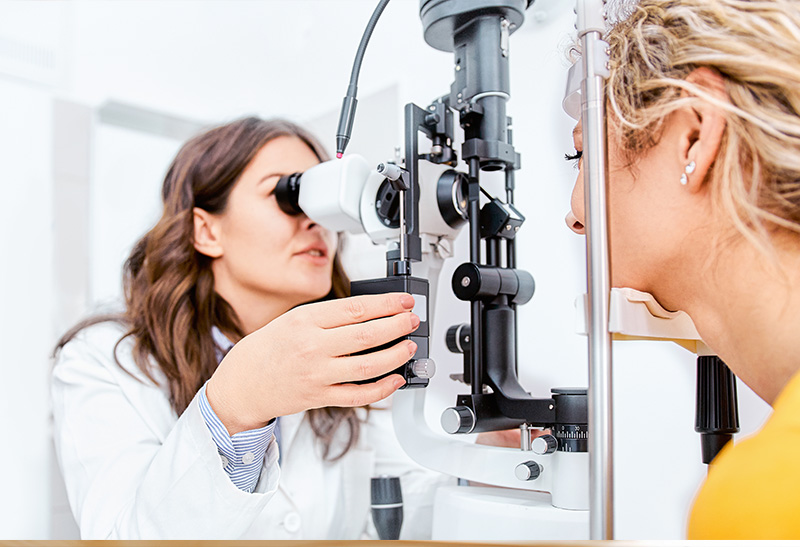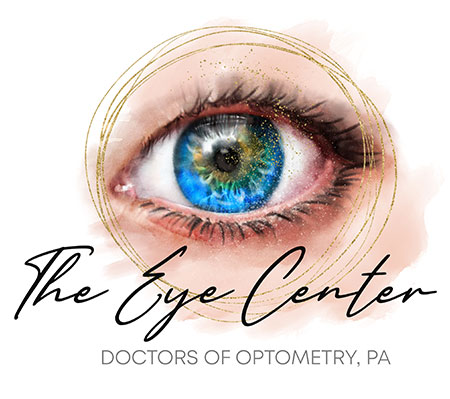All Categories
Featured

While lots of people understand the importance of shielding their skin from the sun, the harmful impacts of ultraviolet (UV) rays on eye health and wellness usually go forgotten. Too much direct exposure to UV radiation can lead to an array of eye problems, some of which can result in irreversible damages. Whether you're absorbing the sun on a summertime day or strolling outdoors on a gloomy mid-day, securing your eyes from UV rays is essential. Right here's what you require to learn about the effects of UV radiation on your eyes and how to secure them.
What Are UV Rays? UV rays are a sort of electro-magnetic radiation released by the sun. They are classified into 3 kinds:
UVA Rays: These permeate deep into the skin and eyes and can contribute to long-lasting damages. UVB Rays: These rays are much more extreme than UVA and are mostly accountable for surface-level damages to the eyes and skin. UVC Rays: These are one of the most unsafe but are primarily soaked up by the Earth's ozone layer and do not generally reach us. UVA and UVB rays are the main culprits behind eye-related damages.
Short-Term Results of UV Exposure on the Eyes. Even temporary direct exposure to intense UV rays can hurt your eyes. One typical condition brought on by this is photokeratitis, or "sunburn of the eye." Signs of photokeratitis consist of:
Agonizing, red eyes. Level of sensitivity to light. Tearing or too much watering. Momentary vision loss or blurred vision. Photokeratitis is generally temporary, yet it offers as a caution of how destructive UV exposure can be, also in tiny dosages.
Long-Term Effects of UV Direct Exposure. Prolonged exposure to UV radiation can result in a lot more significant and long-term eye problems, such as:
Cataracts: UV rays can speed up the formation of cataracts, a problem that triggers clouding of the eye's all-natural lens, leading to blurred vision and, if untreated, loss of sight.

Macular Degeneration: UV exposure can harm the retina, specifically the macula, raising the risk of age-related macular deterioration (AMD), which affects main vision.
Pterygium: A growth of tissue on the white component of the eye that can expand over the cornea, triggering discomfort, redness, and vision issues.
Pinguecula: UV exposure can create yellowish down payments to develop on the conjunctiva, resulting in irritability and dryness.
Skin Cancer Cells Around the Eyes: The delicate skin bordering your eyes is highly susceptible to UV radiation, enhancing the threat of skin cancers cells like basal cell cancer and squamous cell cancer.
How to Secure Your Eyes from UV Rays. Protecting your eyes from UV rays is easy and needs a couple of mindful behaviors:
Purchase Top Quality Sun glasses: Select sunglasses that obstruct 100% of UVA and UVB rays. Seek labels that define "UV 400" security. Wrap-around styles are excellent as they obstruct UV rays from the sides too.
Use a Wide-Brimmed Hat: A hat with a brim at the very least 3 inches wide can considerably lower UV direct exposure to your eyes and face.
Limitation Exposure Throughout Peak Hours: UV rays are greatest in between 10 a.m. and 4 p.m. If you have to be outdoors throughout these hours, see to it you're appropriately protected.
Don't Be Deceived by Clouds: UV rays can penetrate via clouds, so it's vital to put on sunglasses also on overcast days.
Protect Your Eyes Year-Round: Snow, sand, and water can show UV rays, magnifying their impacts. Eye defense isn't just for bright summertime days-- ensure you're covered in all periods.
Usage UV-Blocking Contact Lenses: Several get in touch with lenses currently come with UV defense. If you wear contacts, ask your ophthalmologist regarding lenses with integrated UV filters for included security.
Urge Eye Protection for Kid: Kid's eyes are a lot more delicate to UV rays due to the fact that their lenses are clearer, permitting even more radiation to get to the retina. Make certain they put on sunglasses and hats during outdoor activities.
Regular Eye Exams. Normal exams with an eye care professional are important for early detection of any type of UV-related damages. An eye doctor or eye doctor can evaluate your eyes, suggest safety measures, and find problems like cataracts or macular degeneration early on.
Final thought. By using UV-blocking sunglasses, limiting sunlight exposure during height hours, and staying regular with eye tests, you can ensure your eyes remain healthy and your vision remains clear for years to come. Securing your eyes from UV radiation isn't simply regarding convenience-- it's an essential step in protecting your long-term eye health and wellness.
Latest Posts
Why Consistent Car Maintenance at Montclare Auto Repair Saves You Money
Smooth Light Weight Aluminum Gutters: The Smart Option for Your Home
Explore Top Car Repair Solutions at Montclare Auto Repair – Drive with Confidence
More
Latest Posts
Why Consistent Car Maintenance at Montclare Auto Repair Saves You Money
Smooth Light Weight Aluminum Gutters: The Smart Option for Your Home
Explore Top Car Repair Solutions at Montclare Auto Repair – Drive with Confidence